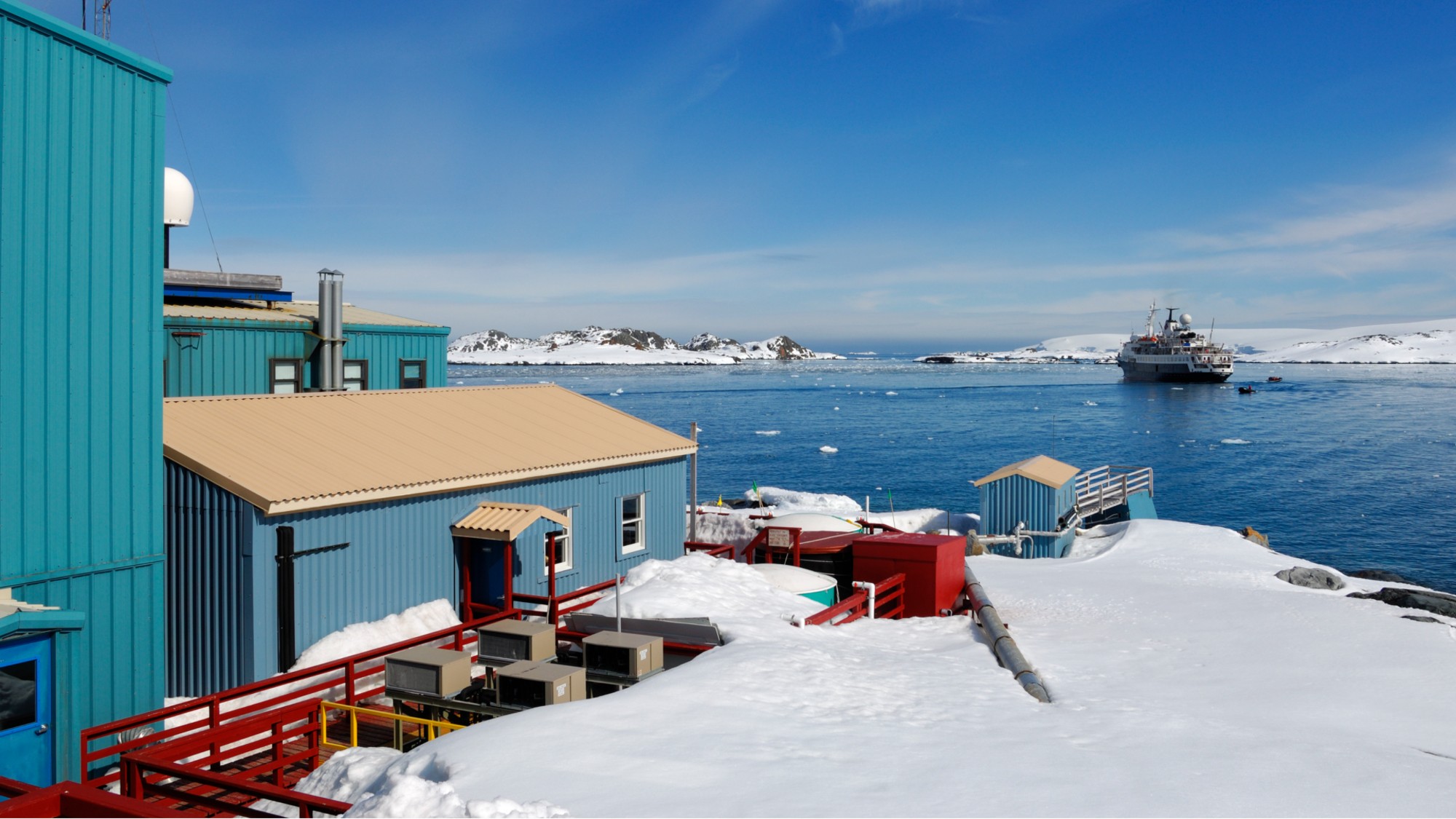DOGE cuts could mean a reduced US footprint in Antarctica
About 10% of the National Science Foundation has been laid off


A free daily email with the biggest news stories of the day – and the best features from TheWeek.com
You are now subscribed
Your newsletter sign-up was successful
Elon Musk's Department of Government Efficiency is taking aim at wide swaths of the federal government, which could mean cuts to research and U.S. expeditions in Antarctica. With programs' funding continually being slashed, scientists worry this could lead to a geopolitical struggle at the South Pole and bring vital Antarctic research to a halt.
Most notable are cuts to the National Science Foundation (NSF), which coordinates the majority of American scientific research in Antarctica, overseeing the Office of Polar Programs and the United States Antarctic Program. But the future of these programs could be in jeopardy with continued NSF cuts.
About 10% of NSF workers fired
The NSF is a $9 billion agency that "supports scientific advancement in practically every field apart from medicine," said The New York Times, which reported that DOGE eliminated about 10% of the foundation's 1,450 career employees. The NSF helps manage the three U.S. research bases in Antarctica that are staffed year-round: Amundsen-Scott South Pole Station, McMurdo Station and Palmer Station.
The Week
Escape your echo chamber. Get the facts behind the news, plus analysis from multiple perspectives.

Sign up for The Week's Free Newsletters
From our morning news briefing to a weekly Good News Newsletter, get the best of The Week delivered directly to your inbox.
From our morning news briefing to a weekly Good News Newsletter, get the best of The Week delivered directly to your inbox.
Research at these stations has been the "bedrock of the [United States'] presence" in Antarctica, said the Times. But it is not just the staff at the bases themselves that could see cuts. The U.S. Coast Guard's "Polar Security Cutter program remains in disarray," and could be a "perfect target" for Musk's "team of cost-cutters," said Forbes. These icebreaker ships help support Antarctic research, but are "years late, wildly over-budget, and both the budget and the schedule are at risk of slipping even further into the red," meaning DOGE might target them.
Cuts with widespread implications
At these research stations, scientists "operate a number of major research projects, studying everything from climate change and rising sea levels to the cosmological makeup and origins of the universe itself," said Wired. With large funding cuts, many "Antarctic scientists and experts don't know if their research will be able to continue, how U.S. stations will be sustained, or what all this might mean for the continent's delicate geopolitics."
Many of the fired NSF employees were program managers for Antarctic projects. These individuals are "critical for maintaining communication with the infrastructure and logistics arm of the NSF," said Wired, as well as "planning deployment for scientists to the continent, keeping track of the budgets, and funding the maintenance and operations work."
Even if these cuts were reversed, it might take a long time for these programs to get going again. Even "brief interruptions will result in people walking away and not coming back," Nathan Whitehorn, a Michigan State University professor and Antarctic scientist, said to Wired. It "could easily take decades to rebuild." Without these project managers, "everything stops," another NSF scientist said to Wired. This scientist had "no idea who I am supposed to report to now or what happens to submitted proposals."
A free daily email with the biggest news stories of the day – and the best features from TheWeek.com
This could also provide an opportunity for other nations to expand their reach onto the continent. Countries "such as Korea and China have been rapidly expanding their presence, while the U.S. has been sort of maintaining the status quo," marine scientist Julia Wellner said to the Times. It is possible that American scientists could simply collaborate with other countries, but those "other countries have their own scientists," said Wellner. "I don't think South Korea or the U.K. is just going to make room for all of us."
Justin Klawans has worked as a staff writer at The Week since 2022. He began his career covering local news before joining Newsweek as a breaking news reporter, where he wrote about politics, national and global affairs, business, crime, sports, film, television and other news. Justin has also freelanced for outlets including Collider and United Press International.
-
 How the FCC’s ‘equal time’ rule works
How the FCC’s ‘equal time’ rule worksIn the Spotlight The law is at the heart of the Colbert-CBS conflict
-
 What is the endgame in the DHS shutdown?
What is the endgame in the DHS shutdown?Today’s Big Question Democrats want to rein in ICE’s immigration crackdown
-
 ‘Poor time management isn’t just an inconvenience’
‘Poor time management isn’t just an inconvenience’Instant Opinion Opinion, comment and editorials of the day
-
 Kurt Olsen: Trump’s ‘Stop the Steal’ lawyer playing a major White House role
Kurt Olsen: Trump’s ‘Stop the Steal’ lawyer playing a major White House roleIn the Spotlight Olsen reportedly has access to significant US intelligence
-
 ICE eyes new targets post-Minnesota retreat
ICE eyes new targets post-Minnesota retreatIn the Spotlight Several cities are reportedly on ICE’s list for immigration crackdowns
-
 House votes to end Trump’s Canada tariffs
House votes to end Trump’s Canada tariffsSpeed Read Six Republicans joined with Democrats to repeal the president’s tariffs
-
 How are Democrats trying to reform ICE?
How are Democrats trying to reform ICE?Today’s Big Question Democratic leadership has put forth several demands for the agency
-
 Gavin Newsom and Dr. Oz feud over fraud allegations
Gavin Newsom and Dr. Oz feud over fraud allegationsIn the Spotlight Newsom called Oz’s behavior ‘baseless and racist’
-
 Businesses are caught in the middle of ICE activities
Businesses are caught in the middle of ICE activitiesIn the Spotlight Many companies are being forced to choose a side in the ICE debate
-
 Is Alex Pretti shooting a turning point for Trump?
Is Alex Pretti shooting a turning point for Trump?Today’s Big Question Death of nurse at the hands of Ice officers could be ‘crucial’ moment for America
-
 DOGE shared Social Security data, DOJ says
DOGE shared Social Security data, DOJ saysSpeed Read The Justice Department issued what it called ‘corrections’ on the matter
